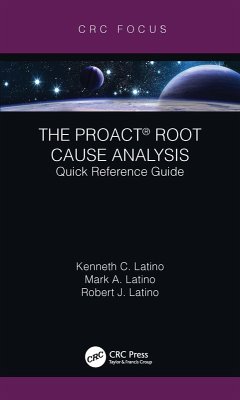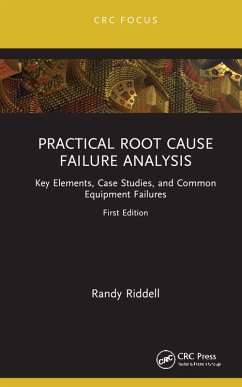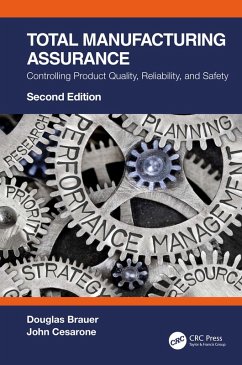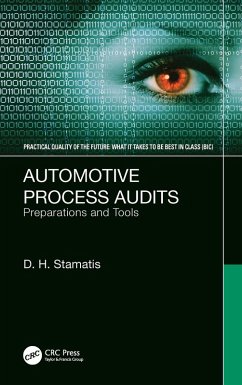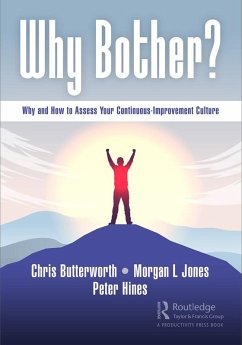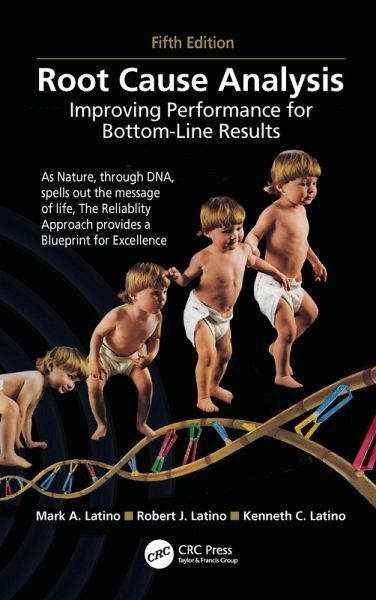
Root Cause Analysis (eBook, PDF)
Improving Performance for Bottom-Line Results, Fifth Edition
Versandkostenfrei!
Sofort per Download lieferbar
43,95 €
inkl. MwSt.
Weitere Ausgaben:

PAYBACK Punkte
22 °P sammeln!
This book comprehensively outlines what a holistic and effective Root Cause Analysis (RCA) system looks like. From the designing of the support infrastructure to the measuring of effectiveness on the bottom-line, this book provides the blueprint for making it happen. While traditionally RCA is viewed as a reactive tool, the authors will show how it can be applied proactively to prevent failures from occurring in the first place. RCA is a key element of any successful Reliability Engineering initiative. Such initiatives are comprised of equipment, process and human reliability foundations. Huma...
This book comprehensively outlines what a holistic and effective Root Cause Analysis (RCA) system looks like. From the designing of the support infrastructure to the measuring of effectiveness on the bottom-line, this book provides the blueprint for making it happen. While traditionally RCA is viewed as a reactive tool, the authors will show how it can be applied proactively to prevent failures from occurring in the first place. RCA is a key element of any successful Reliability Engineering initiative. Such initiatives are comprised of equipment, process and human reliability foundations. Human reliability is critical to the success of a true RCA approach.
This book explores the anatomy of a failure (undesirable outcome) as well as a potential failure (high risks). Virtually all failures are triggered by errors of omission or commission by human beings. The methodologies described in this book are applicable to any industry because the focus is on the human being's ability to think through why things go wrong, not on the industry or the nature of the failure. This book correlates reliability to safety as well as human performance improvement efforts. The author has provided a healthy balance between theory and practical application, wrapping up with case studies demonstrating bottom-line results.
Features
This book explores the anatomy of a failure (undesirable outcome) as well as a potential failure (high risks). Virtually all failures are triggered by errors of omission or commission by human beings. The methodologies described in this book are applicable to any industry because the focus is on the human being's ability to think through why things go wrong, not on the industry or the nature of the failure. This book correlates reliability to safety as well as human performance improvement efforts. The author has provided a healthy balance between theory and practical application, wrapping up with case studies demonstrating bottom-line results.
Features
- Outlines in detail every aspect of an effective RCA 'system'
- Displays appreciation for the role of understanding the physics of a failure as well as the human and system's contribution
- Demonstrates the role of RCA in a comprehensive Asset Performance Management (APM) system
- Explores the correlation between Reliability Engineering and Safety
- Integrates the concepts of Human Performance Improvement, Learning Teams, and Human Error Reduction approaches into RCA
Dieser Download kann aus rechtlichen Gründen nur mit Rechnungsadresse in A, B, BG, CY, CZ, D, DK, EW, E, FIN, F, GR, HR, H, IRL, I, LT, L, LR, M, NL, PL, P, R, S, SLO, SK ausgeliefert werden.





